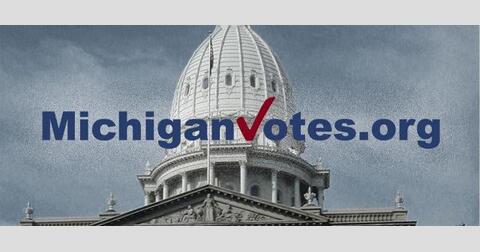Bill Would Allow Automatic Pay Increases For Public Safety Employees
A new bill giving public safety employees a carve out from a key labor reform is in the House Commerce Committee.
Public Act 54 of 2011 banned seniority-based automatic pay raises for individual government employees when a union contract has expired and no replacement has been negotiated. Before enactment of the law, union members could get automatic pay increases while new contracts were being negotiated, which served as a disincentive to reaching agreements.
But House Bill 5097, which has 23 co-sponsors, would exempt law enforcement and fire department employees from the law. Specifically, the exemption would apply to employees who are covered by Public Act 312 of 1969, which is a compulsory arbitration law.
Under House Bill 5097 government public safety employees would be the winners at the taxpayers' expense, said Jack McHugh, senior legislative analyst with the Mackinac Center for Public Policy.
"Life is already tough for state taxpayers stuck paying $5.8 billion more annually for government employee fringe benefits than the cost if those bennies just matched private sector averages," McHugh said. "Life is hard enough for public safety officials trying to balance budgets in the face of laws that already tilt the bargaining table toward government unions, including a binding arbitration law for police that arbitrarily jacks compensation rates far above what the market suggests is appropriate. So why would a bipartisan group of legislative sponsors want to make life even harder for taxpaying families and struggling local budgets?"
House Speaker Pro-tempore John Walsh, R-Livonia, the primary sponsor of House Bill 5097, introduced the legislation on Oct. 23.
Rep. Walsh said Public Act 54 of 2011 was not passed with the intent of impacting the government employees that House Bill 5097 would exempt.
"When we passed Public Act 54 there were no thoughts at all that it would apply to employees who were covered by Public Act 312," he said. "At the time, the police and firefighters were told it wouldn't affect them. In fact, Public Act 54 has language that is in conflict with Public Act 312. So, to me, it is a situation where we either do legislation or eventually face litigation. In my opinion, the best way to deal with this is by amending Public Act 54, so I introduced the bill."
On June 7, 2011, Gov. Rick Snyder signed House Bill 4152, which became Public Act 54 of 2011. The legislation was sponsored by former Rep. Marty Knollenberg, R-Troy. It was passed by the House on a 63-47, party-line vote and on May 18, 2011, by the Senate on a 21-17 vote.
Bipartisan Cosponsors:
There are 18 Republicans co-sponsoring the legislation. They are Reps: Kevin Cotter, R- Mt. Pleasant; Hugh Crawford, R-Novi; Kevin Daley, R-Attica; Jeff Farrington, R-Utica; Frank Foster, R-Pellston; Ken Goike, R-Ray Township; Nancy Jenkins, R-Clayton; Eileen Kowall, R-White Lake; Ken Kurtz, R-Coldwater; Andrea LaFontaine, R-Richmond; Matt Lori, R-Constantine; Lisa Posthumus Lyons, R- Alto; Mike McCready, R-Birmingham; Rick Outman, R-Six Lakes; Peter Pettalia, R- Presque Isle; Wayne Schmidt, R- Traverse City; Pat Somerville, R-New Boston; and Dale Zorn, R-Ida.
Five Democrats are also co-sponsors. They are: Reps:Vicki Barnett, D-Farmington Hills; Paul Clemente, D-Lincoln Park; Brandon Dillon, D-Grand Rapids; Tim Greimel, D-Auburn Hills; and Henry Yanez, D- Sterling Heights.
Michigan Capitol Confidential is the news source produced by the Mackinac Center for Public Policy. Michigan Capitol Confidential reports with a free-market news perspective.


 In last agenda item of year, Oakland County Commissioners gave themselves a raise
In last agenda item of year, Oakland County Commissioners gave themselves a raise
 One-third of Michigan residents receive government assistance
One-third of Michigan residents receive government assistance
 Feds fund 98% of the Office of Global Michigan
Feds fund 98% of the Office of Global Michigan